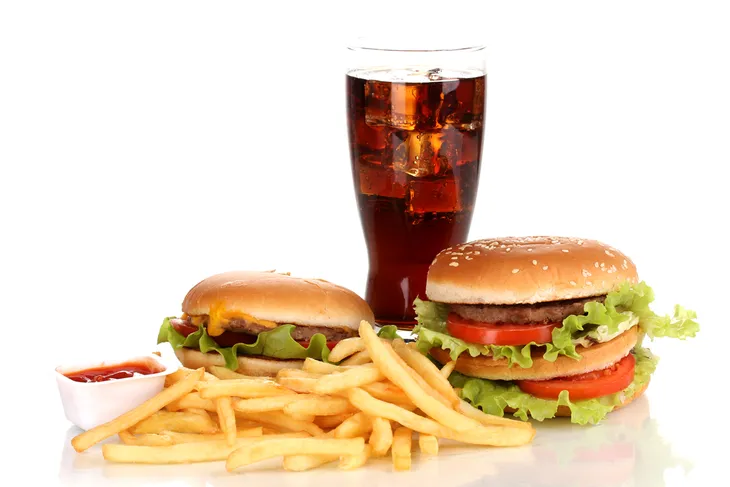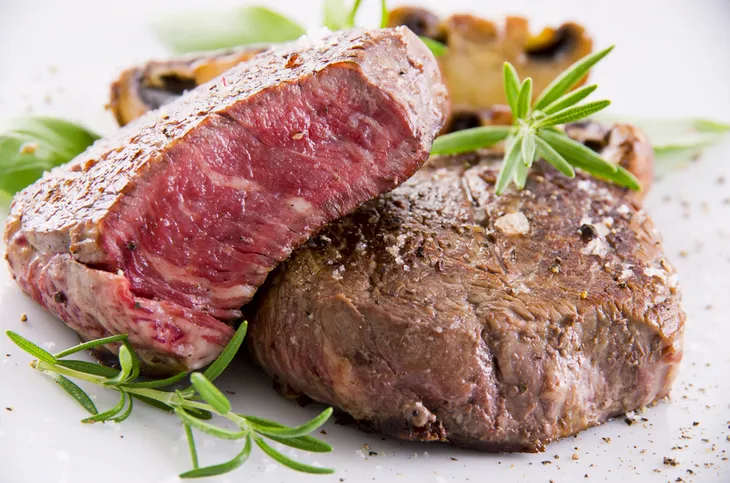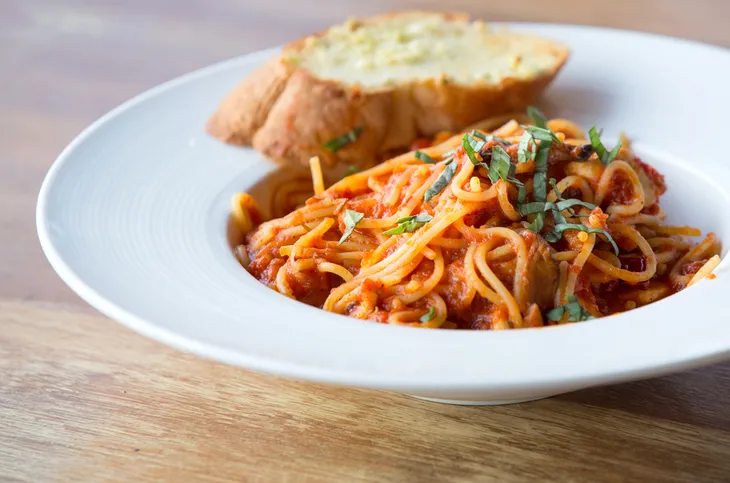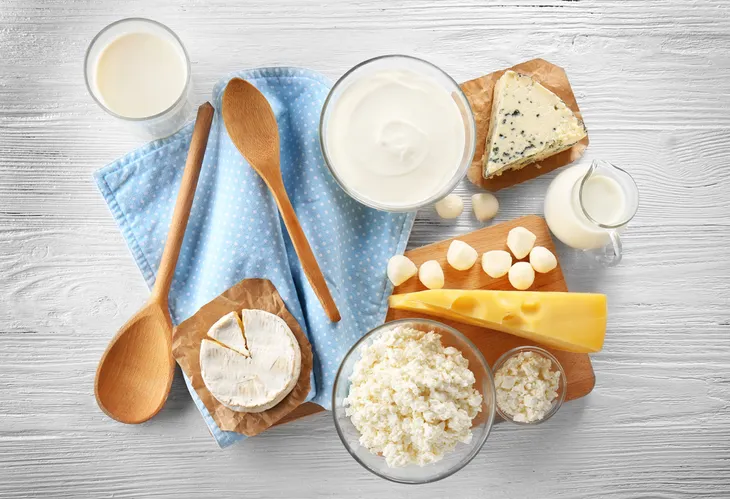Rheumatoid arthritis (RA) affects more than a million people in the U.S., according to Healthline. It’s an autoimmune system disease, meaning your body’s own defenses attack healthy tissues which leads to painful swelling and inflammation in joints. While there are treatments for RA, including NSAIDs (over-the-counter painkillers such as Tylenol), there are also more powerful corticosteroid medications available.
Aside from prescription or non-prescription remedies, it turns out you can also adjust your diet to reduce symptoms of this disease. Here are some of the worst foods to eat with rheumatoid arthritis…
Fast Foods
It’s difficult to completely avoid getting that fast food burger and fries, especially if you’re on a tight schedule and need to fill the gap in your stomach quickly. But not only will fast food increase your risk of cardiovascular issues and diabetes (among other potential negative impacts), it will also likely worsen your RA symptoms.
WebMD says your favorite fast food combos are loaded with trans fat, which it says are added to foods to extend their shelf life. While they raise your “bad” cholesterol levels (that can lead to heart issues), they can also “trigger inflammation throughout your body,” notes the source.
Red Meat
A lot of people dream about cooking up a big steak on the barbecue during the warmer months. But while beef, pork, lamb and other red meats are sources of protein and several vitamins, there has been a lot of talk about how they can contribute to health problems such as cancer, for example.
Those with RA may also want to reconsider their intake of red meat. EveryDay Health explains that many cuts of red meat are high in saturated fats and omega-6 fatty acids, which both can worsen inflammation. “Some people with RA have reported that their symptoms improve when they rid their diet of red meat,” it notes. However, it also says you might not have to give it up altogether: just look for leaner cuts.
Cookies/Pastries
You’re shopping at the grocery store and you pass by a box of cookies or donuts that are on sale. You throw it into your cart without a second thought. What’s a little treat going to hurt? Well, apparently it can hurt a lot if you are suffering from RA, according to HealthGrades.com.
The problem with these (admittedly delicious) store-bought treats is that they are usually stuffed with refined sugars (that can trigger inflammation), notes the source. To identify whether the food you’re buying has refined sugars, look for ingredients on the label such as fructose and anything else that ends in “ose,” it adds.
Soft Drinks
These drinks, which are often presented with a fast-food combo, also are loaded with refined sugars, says HealthGrades.com (but you won’t always find these ingredients listed on the cup).
Meanwhile, WebMD actually cites a study that says “sugary drinks” like sodas might actually be at higher risk of developing RA in the first place. The research shows that women who drink one or more “sugar-sweetened sodas” daily could have a higher change of RA, while also having a higher risk of diabetes, heart disease, and more.
Breads and Pastas
What do bread and pasta have in common (other than being delicious and filling?)? They both contain gluten, which for some people can be a major trigger for health issues. While it’s fairly common knowledge that gluten will exacerbate symptoms of Celiac disease, it can also have negative impacts on RA as well, notes HealthGrades.com.
It explains that gluten is not exclusive to bread and pasta – you can find it in many soups and even hiding in soy sauce. It can also be found in some vitamins and even medications, it warns. Instead, look for alternatives such as gluten-free bread and pastas. But as VeryWell Health warns, “gluten free” on a food label doesn’t always mean it contains no gluten – and there are certain ingredients (such as malt and seitan) that indicate gluten content, it adds.
Alcohol
Speaking of gluten, beer is a major source of it, as you may already know if you have an inflammatory disease. (There are gluten-free beers available, and some of them might even taste good.) There are other reasons to avoid drinking too much beer and other alcoholic beverages if you have a case of RA, explains EveryDay Health.
More specifically, the source notes that drinking excessive levels of alcohol raises something called C-reactive protein, which is a “powerful signal of inflammation.” However, there’s some evidence that moderate drinking may have a positive effect on RA risk – so having a single glass of wine with dinner might actually have some benefits such as reduced inflammation.
Milk and Other Dairy Products
Milk is a healthy source of protein and calcium, among other vitamins and nutrients. It also contains casein, and while it this protein benefits such as muscle regeneration, it’s hard for some people to digest
EveryDay Health notes that some people with RA that are intolerant to milk have developed antibodies to the proteins, but the antibodies can go out of control and start attacking things in the body that aren’t milk. The source suggests looking for almond milk as an alternative, but other sources say looking for low-fat dairy options may also help curb inflammation.
Salty Foods and MSG
Salt cravings are as real to many as sugar cravings, which could have you reaching for a bag of potato chips or other foods such as pizza that are surprisingly high in sodium (that you might not think of as a culprit). Or, you might be tempted to add more salt to your restaurant meal thanks to that salt shaker on the table.
The simplified advice from HealthGrades.com for those with RA is – don’t. “While some salt isn’t usually harmful, excessive salt and other preservatives can contribute to inflammation,” it notes. Meanwhile, MSG in many pre-prepared foods as a flavor enhancer also contains sodium (although considerably less than table salt), and can also trigger inflammation, it notes. Beware of some natural sources of MSG such as tomatoes, soy, and cheese, adds the source.
Coffee
This one can wake you up, or be a tough wake-up call – well, if you have RA, that is. Coffee is mega-popular in the U.S. (more than 180-million people in the U.S. consume it regularly according to EveryDay Health), but it might be secretly worsening your RA symptoms, it adds.
It cites a study that suggests coffee raises anti-cyclic citrullinated protein related to a “specific subtype of RA,” and that you should consider ditching the Joe for a while to see if your condition improves. (Perhaps talk to your doctor if you’re planning on making big dietary changes). However, we also want to point out that stopping coffee suddenly can result in withdrawal symptoms such as headaches and anxiety, and drinking it may also offer some health benefits such as giving you a much-needed energy boost and even reducing diabetes risk.












